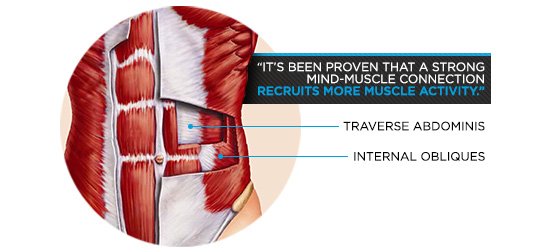Anatomy Of The Core
The major muscles that move support and stabilize your spine are called the muscles of the core or trunk. Your core the roughly 30 muscles that connect your legs to your hips spine and rib cage have a tough job.
 Read Pdf Anatomy Of Core Stability A Trainer S Guide To
Read Pdf Anatomy Of Core Stability A Trainer S Guide To
Its connected to our vital life force.

Anatomy of the core. The core is an anatomical section of the body operating in conjunction with the entire kinetic chain to produce and reduce force and stabilize during functional movement patterns. The diaphragm forms the upper surface of the abdomen. However the abdominal region is composed of several key muscles that contribute to core function.
The abdomen contains all the digestive organs including the stomach small and large intestines pancreas liver and gallbladder. After all this is primarily what we want to stabilize with our core muscles. Anatomy of core stability features such exercises.
Core anatomy functional movements are highly dependent on this part of the body and lack of core muscular development can result in a predisposition to injury. This region is served by several muscles that contribute to spine stability in a variety of postures providing the ability to flex side bend and rotate the trunk. In order for optimal function to occur in within sports performance both the isolated and integrated function of each muscle within the kinetic chain must be efficient.
Action of the trunk what the action looks like move your body. At the level of the pelvic bones the abdomen ends and the pelvis begins. Anatomy of the core the core is what supports us.
The anatomical structure that is the deepest and most central is the spine. The major muscles of the core reside in the area of the belly and the mid and lower back not the shoulders and peripherally include clarification needed the hips the shoulders and the neck. Namely to work synergistically to stabilize your torso.
The abdomen is the region lying between the proximal chest and the distal pelvis. The word core itself implies deep and central. They are designed to work the entire core musculature from the major muscles in the abdomen spine lower back torso hips and thighs which endure the greater effort to the smaller assisting muscles which support the larger.
A lot of what we hear about the core is directly related to the spine specifically and the torso in general.
 Anatomy Of The Core Ekhart Yoga
Anatomy Of The Core Ekhart Yoga
 Core Anatomy Learn About Core Muscles Ace Blog
Core Anatomy Learn About Core Muscles Ace Blog
 Anatomical Core Training Askmen
Anatomical Core Training Askmen
 Moving From The Core An Anatomy Lesson Circus Now
Moving From The Core An Anatomy Lesson Circus Now
 Complete Anatomy Award Winning App Comes To Windows Store
Complete Anatomy Award Winning App Comes To Windows Store
 Anatomy Of Fitness Core 9781743677292 Amazon Com Books
Anatomy Of Fitness Core 9781743677292 Amazon Com Books
 Muscles Of The Foot Summary Core Anatomy And Physiology
Muscles Of The Foot Summary Core Anatomy And Physiology
 Full Body Anatomy Core Training Anatomy An Insider S
Full Body Anatomy Core Training Anatomy An Insider S
 Delavier S Core Training Anatomy
Delavier S Core Training Anatomy
 Core Anatomy Winding Round To Foot Drop Which Nerve Is
Core Anatomy Winding Round To Foot Drop Which Nerve Is
 Anatomy Of Fitness Core Sports Workout
Anatomy Of Fitness Core Sports Workout
 Core Anatomy Learn About Core Muscles Ace Blog
Core Anatomy Learn About Core Muscles Ace Blog
 Anatomy Of The Core Muscles Ankeny Ia Patch
Anatomy Of The Core Muscles Ankeny Ia Patch
 Core Anatomy Learn About Core Muscles Ace Blog
Core Anatomy Learn About Core Muscles Ace Blog
 Amazon Com Exercise Anatomy Fitness Core Complete Workout
Amazon Com Exercise Anatomy Fitness Core Complete Workout
 The Anatomy Sessions Anne Ondrey Core Tracy Rhinehart
The Anatomy Sessions Anne Ondrey Core Tracy Rhinehart
 Yoga Anatomy 4 Main Functions Of Your Core Muscles
Yoga Anatomy 4 Main Functions Of Your Core Muscles
 Your Core Muscles Deeper Than You Think Yoga Anatomy
Your Core Muscles Deeper Than You Think Yoga Anatomy
 Yoga Anatomy Glues Hamstrings Adductors Jason Crandell
Yoga Anatomy Glues Hamstrings Adductors Jason Crandell
 How To Get The Most Out Of Your Core Training Anatomy
How To Get The Most Out Of Your Core Training Anatomy
 Anatomy Core Muscles Stock Photos Page 1 Masterfile
Anatomy Core Muscles Stock Photos Page 1 Masterfile
 Core Strength Reduces Low Back Pain And Prevents Injuries In
Core Strength Reduces Low Back Pain And Prevents Injuries In
 Anatomy Of Core Stability Bloomsbury Sport
Anatomy Of Core Stability Bloomsbury Sport
 Abdominal Encyclopedia Core Anatomy And Effective Training
Abdominal Encyclopedia Core Anatomy And Effective Training
 Yoga For Your Core 10 Ceu Twist Yoga
Yoga For Your Core 10 Ceu Twist Yoga
 Anatomy Of The Abs 5 Core Exercises For A Six Pack
Anatomy Of The Abs 5 Core Exercises For A Six Pack



Belum ada Komentar untuk "Anatomy Of The Core"
Posting Komentar